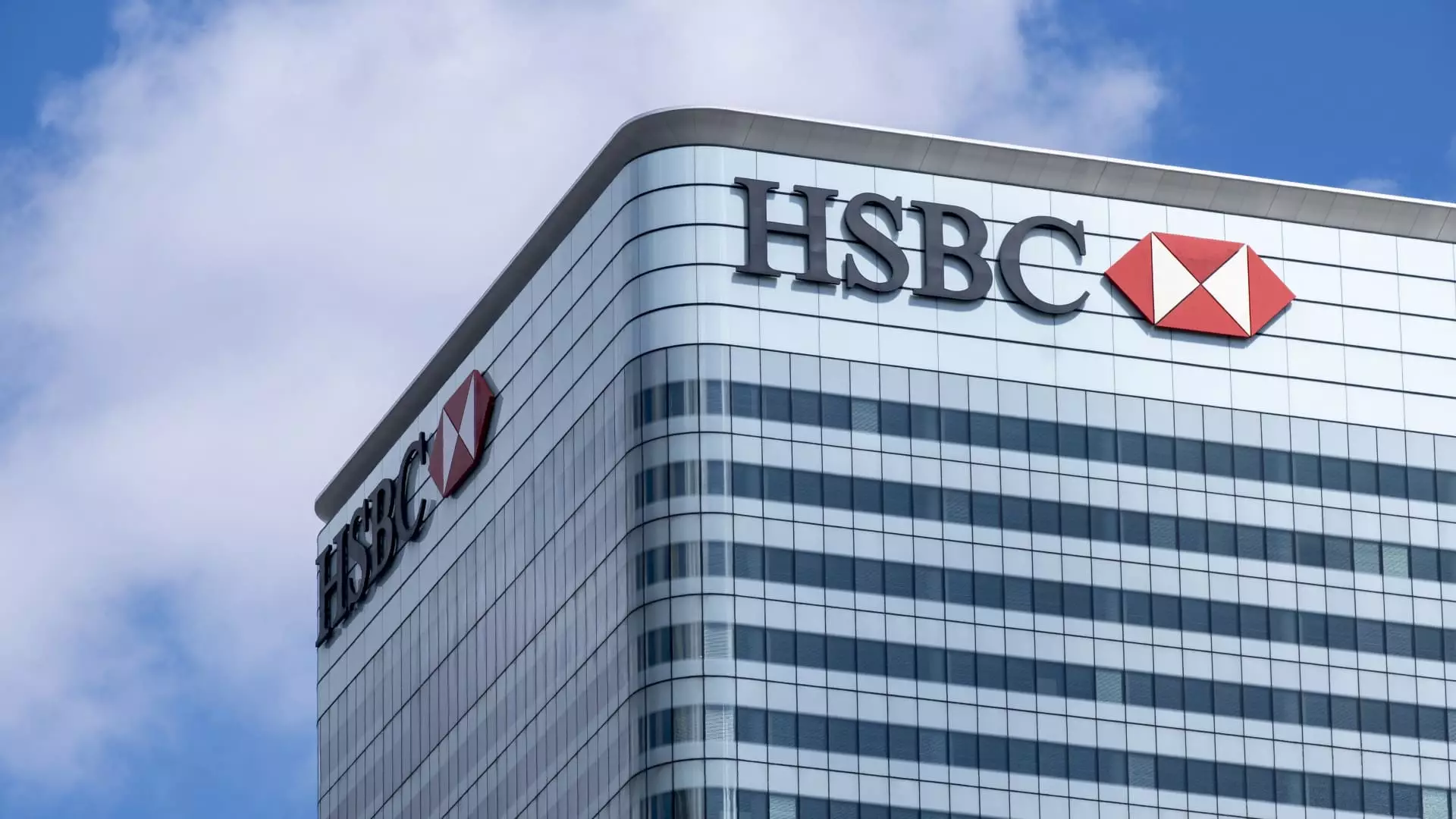In an impressive display of resilience, HSBC, the largest bank in Europe, reported substantially positive third-quarter earnings on Tuesday, surpassing analyst expectations. The financial institution showcased a pre-tax profit of $8.5 billion, comfortably above the anticipated $8 billion. This figure reflects a 10% increase from the previous year’s $7.71 billion, painting a picture of robust growth amid a complicated economic backdrop. Revenues soared to $17 billion, driven predominantly by gains in its wealth and personal banking segments.
HSBC’s profitability is not merely a one-time occurrence; it highlights the bank’s ability to adapt to fluctuating market conditions. With a reported profit after tax standing at $6.7 billion—$500 million more than in the comparable period of 2023—HSBC not only demonstrates its financial prowess but also its strategic insights for maintaining strong operational efficiency.
In a noteworthy move to bolster investor confidence and enhance shareholder value, HSBC has announced a share repurchase plan of up to $3 billion. This initiative brings the total share buyback program this year to an impressive $9 billion, indicating a proactive approach to capital management. The bank had already executed similar buyback programs earlier in the year, which underscores its commitment to returning value to its shareholders and signals a strong balance sheet.
Moreover, HSBC’s board has approved a third interim dividend of $0.1 per share, sending a clear signal of its ongoing commitment to maintaining dividends amid restructuring efforts. By prioritizing shareholder returns, HSBC is effectively aligning its corporate strategies with stakeholder interests, fostering a sense of trust and reliability.
A critical aspect of HSBC’s forward strategy involves a significant reorganization into four distinct business units: Hong Kong, U.K., international wealth and premier banking, and corporate and institutional banking. This decision, which comes alongside the appointment of the company’s first female finance chief, signals a transformative approach designed to enhance operational efficiency.
With the projected implementation scheduled for January, this restructuring aims to streamline processes and minimize redundancy within the organization. Georges Elhedery, HSBC’s CEO, described the new framework as a pathway to a more dynamic and agile institution. Such changes indicate a dedication to innovation and responsiveness in an increasingly complex financial landscape, emphasizing that HSBC is poised to navigate upcoming challenges adeptly.
Despite these accomplishments, the bank did experience a decrease in its net interest margin, declining 24 basis points to 1.46%. This metric, closely watched by analysts, points to challenges in lending profitability, suggesting a careful monitoring of interest rate dynamics is required. However, basic earnings per share rose to 34 cents from 29 cents, reflecting the bank’s strong overall performance.
As HSBC continues to adapt and refine its operations, the coming quarters will be critical in determining the effectiveness of its strategic initiatives. The positive third-quarter results may provide momentum, but sustained attention to both market conditions and internal efficiencies will be vital as the financial ecosystem evolves. In sum, HSBC’s recent actions showcase a robust financial health coupled with forward-thinking strategies that aim for resilience and growth in a highly competitive environment.

